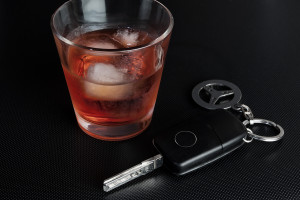 As a general rule, you should never drink and drive. But if in some twist of fate you find yourself behind the wheel of a car while intoxicated, you should hope that you aren’t in New York. The DWI laws of NY are attached to some highly punitive measures.
As a general rule, you should never drink and drive. But if in some twist of fate you find yourself behind the wheel of a car while intoxicated, you should hope that you aren’t in New York. The DWI laws of NY are attached to some highly punitive measures.
The criminal and administrative penalties for first-time DWI offenders in New York vary depend on the BAC (blood alcohol concentration) and the level of impairment of the driver. For example, first-time DWI offenders with a BAC of 0.18% or higher usually face higher penalties, in what is called an aggravated DWI. A number of other circumstances can affect the penalties imposed for the first offense DWI including the age of the driver, presence of a minor in the car, whether anyone was injured, and whether the offender was driving a commercial vehicle.
The State of New York has a several classifications of offense for intoxicated drivers:
• Driving While Intoxicated (DWI): The Blood alcohol concentration (BAC) of 0.08% or higher. For commercial vehicles it’s a BAC of 0.04% or higher. Or, if the driver is intoxicated to a substantial extent.
• Aggravated DWI: Driving while intoxicated with a passenger who’s 15 years old or younger or having a BAC of 0.18% or higher.
• Drug-DWAI (Driving while ability impaired): the ability to drive as a ‘prudent and reasonable driver’ has been impaired to a certain extent by drugs.
• Alcohol DWAI: the ability to drive as a ‘reasonable and prudent’ driver would is impaired to a certain extent due to the consumption of alcohol.
• Combination DWAI: the ability to drive as a ‘prudent and reasonable’ driver is impaired to a certain extent due to a combination of drugs and alcohol.
Consequences
First time offense: Misdemeanor
Involves a license suspension for up to 90 days, with up to 15 days in jail, fines, and an enrollment in a NY Drinking Driver Program. The fines can run up to $1,000 on your first offence, which is a combined total of a one-time fine followed by 3 annual assessment fines of $250 per year, usually associated with the Driver Responsibility Program.
Second Offense
An offense is considered a misdemeanor if it occurs at least 10 years after the first charge. Otherwise, the offense becomes a felony. The base fine for this kind of charge is between $500 and $750, along with substantial annual assessment fines. You might also face a license revocation for up to 6 months. You can also be jailed for up to a month and even be enrolled in a Drinking Driver Program.
Worst Case Scenarios
As you might expect, there can be some harmful scenarios which would attract more extreme penalties for DWI offences. For instance, Combination DWAI and drug DWAIs usually attract with much weightier jail sentences, as well as longer license revocations and suspensions.
Aggravated DWIs: these occur when the BAC is 0.18% or higher. Under this kind of charge, the minimum fine stands at $1,000 and may not exceed $1,500 plus some annual assessment fines, license revocation or suspension for up to a year, and up to 4 years in jail.

